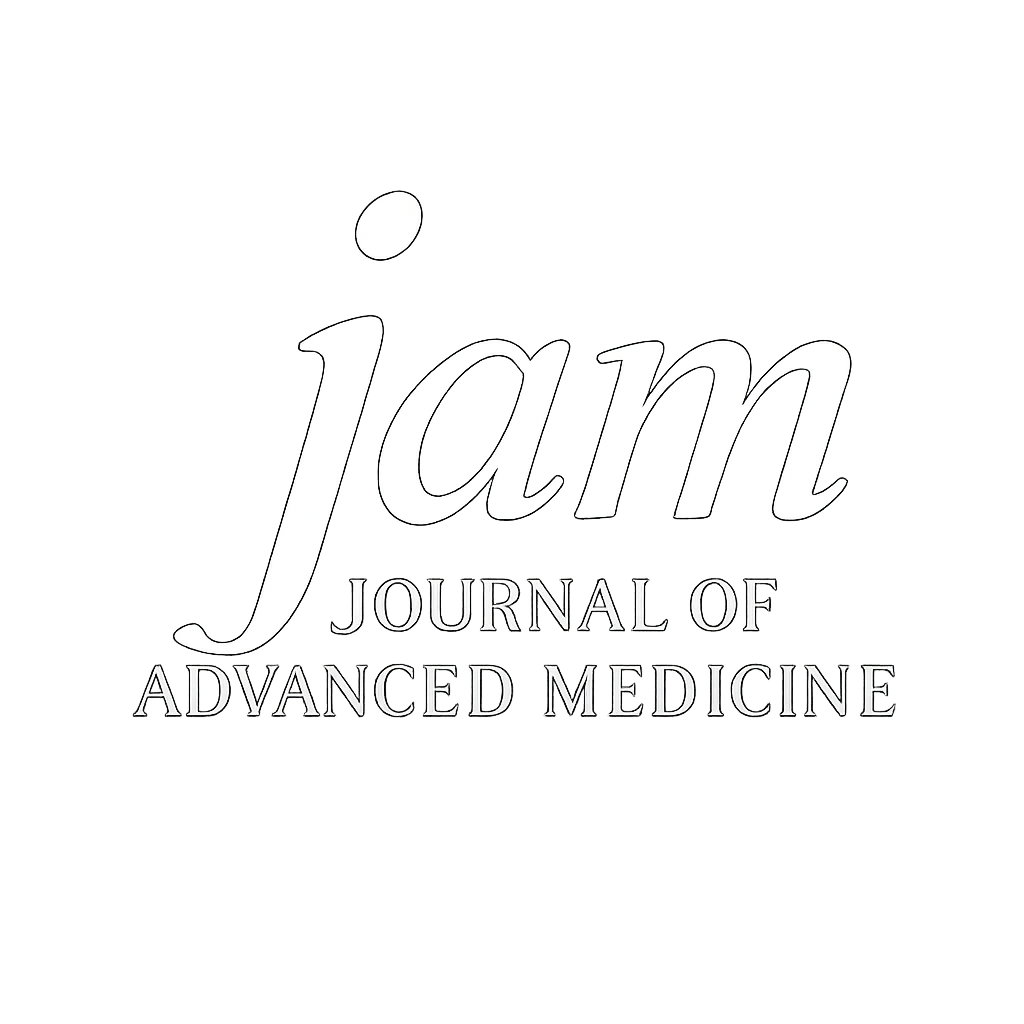Aims and Scope
Journal Focus
Journal of Advanced Medicine (JAM) is dedicated to publishing high-quality, peer-reviewed research that contributes to the advancement of all fields of medical science and clinical practice. The journal welcomes submissions from researchers and healthcare professionals worldwide.
Our goal is to serve as a platform for the dissemination of innovative research that addresses significant challenges in healthcare and advances our understanding of disease mechanisms, diagnostic approaches, and therapeutic interventions.
Research Areas
Clinical Medicine
- Diagnostic Innovations: Novel approaches and technological advancements in disease diagnosis.
- Therapeutic Strategies: Development and testing of new treatments for various diseases, including clinical trials.
- Personalized Medicine: Research focused on individualized treatment approaches, biomarkers, and patient stratification.
Drug Synthesis and Development
- New Chemical Entities (NCEs): Research on novel compounds, their synthesis, and characterization.
- Structure-Activity Relationships (SAR): Exploration of the relationship between chemical structure and biological activity.
- Lead Optimization: Improvement of candidate molecules for better efficacy and safety.
Pharmacology and Toxicology
- Drug Efficacy and Safety Assessments: Studies on pharmacodynamics, pharmacokinetics, and dose-response relationships.
- Toxicology Studies: Research on the adverse effects of drugs, safety assessments, and toxicity mechanisms.
Drug Delivery and Formulation
- Advanced Drug Delivery Systems: Research on novel delivery platforms, such as nanoparticles, liposomes, and sustained-release formulations.
- Nanomedicine: Use of nanotechnology in drug delivery, diagnostics, and therapy.
- Targeted Drug Delivery: Development of approaches for site-specific drug delivery to maximize efficacy and minimize side effects.
Biopharmaceuticals and Biotechnology
- Biologics and Biosimilars: Research on biologically derived pharmaceuticals, including proteins, antibodies, and other therapeutic agents.
- Gene and Cell Therapy: Studies on innovative therapeutic approaches involving gene editing (e.g., CRISPR) and cellular therapies.
- Vaccine Development: Research on novel vaccines, including development, efficacy, and immune response studies.
Bioinformatics and Computational Biology
- Data Analysis in Drug Discovery: Use of computational tools for identifying drug targets, virtual screening, and molecular modeling.
- Genomics and Proteomics: Research involving the use of bioinformatics tools for genomic, transcriptomic, and proteomic analysis related to disease mechanisms and drug development.
- Predictive Modeling: Development of predictive models for drug efficacy, toxicity, and patient response.
Public Health and Epidemiology
- Disease Prevention and Control: Studies on preventive measures, vaccination programs, and health education initiatives.
- Health Policy and Systems Research: Analysis of healthcare systems, policies, and their impact on public health outcomes.
- Epidemiological Studies: Research on the incidence, distribution, and determinants of diseases in specific populations.
Survey-Based Studies
- Clinical Surveys: Population-based surveys for understanding disease prevalence, treatment outcomes, and patient satisfaction.
- Pharmaceutical Surveys: Surveys focused on drug use patterns, safety, and adherence among patients.
Case Reports and Short Communications
- Case Reports: Interesting and unique clinical cases that contribute to the understanding of disease processes, diagnostic approaches, and therapeutic responses.
- Short Communications: Brief reports on innovative findings, preliminary data, or novel methodologies that provide impactful insights into medical or pharmaceutical research.
Regulatory Science and Pharmacovigilance
- Drug Regulation: Studies on regulatory policies, compliance, and market approval processes for drugs and medical products.
- Pharmacovigilance: Research focusing on the detection, assessment, and prevention of adverse effects or any other drug-related problems.
Translational Medicine
- Bench to Bedside Research: Studies that focus on translating laboratory findings into clinical applications.
- Clinical Trials and Experimental Therapeutics: Research on new treatment modalities in preclinical and clinical trial phases.
Complementary and Alternative Medicine
- Herbal and Natural Products: Studies on traditional medicines, herbal remedies, and their integration with conventional treatments.
- Nutraceuticals: Research on the use of food-derived products for therapeutic benefits and disease prevention.
Aim of the Journal
The journal is dedicated to fostering interdisciplinary collaboration between researchers, healthcare professionals, and industry stakeholders. By encompassing a wide range of topics from fundamental research to clinical applications, JAM aims to promote innovative solutions that address current healthcare challenges and contribute to improving patient outcomes worldwide.
Why Publish with JAM
Interdisciplinary Focus
JAM encourages submissions that bridge disciplines to provide a more comprehensive understanding of healthcare challenges.
Rigorous Peer Review
All submissions undergo a double-blind peer review to maintain high-quality standards.
Open Access
Research published in JAM is freely accessible, allowing for widespread dissemination of knowledge.
We encourage researchers, practitioners, and academicians from around the world to submit their valuable work to the Journal of Advanced Medicine and help us contribute to advancements in the medical and pharmaceutical sciences.
Peer Review Process
All submissions undergo rigorous peer review by at least two independent experts in the field. The journal maintains a double-blind peer review process to ensure impartiality and high standards of quality.
The journal is committed to publishing high-quality research that meets international standards of scientific rigor and ethical conduct. All research involving human subjects or animals must comply with relevant ethical guidelines and regulations.
Open Access Policy
Journal of Advanced Medicine is a gold open access journal. All articles published in the journal are freely available to read, download, and share without subscription barriers. Authors retain copyright of their work and grant the journal a license to publish the article.
Publication in the journal requires payment of an Article Publishing Charge (APC) of 1000 SAR (excluding tax). For more information on our open access policy, please visit our Ethical Guidelines page.
Contact Information
Editorial Inquiries
For questions about manuscript submission, editorial policies, or journal scope:

